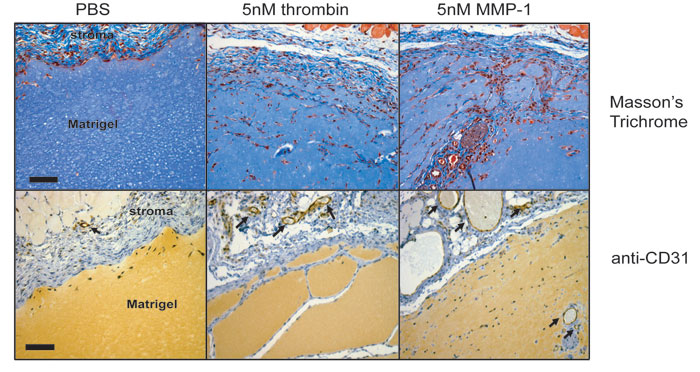Research Projects
Our laboratory is investigating the roles of Matrix Metalloproteinases (MMPs) in joint destruction in arthritis and in tumor invasion and metastasis. MMPs have traditionally been defined by their ability to degrade components of the extracellular matrix, but they are increasingly shown to have novel roles that modulate cell behavior. Over-expression of MMPs contributes to disease pathology, and we are studying the mechanisms controlling this over-expression.
One project involves investigating the ability of novel ligands for the nuclear hormone receptors, RXR and PPAR-gamma, to block expression of MMPs in arthritic tissues. The goals are to develop new and specific therapies to prevent joint degradation in this disease, and to understand the molecular mechanisms of these therapies.
Our work on MMPs in cancer focuses on melanoma and breast cancer. With melanoma, we found that expression of one MMP (MMP-1; collagenase) is required for melanoma cells to metastasize to the lung. Further, MMP-1 has the novel ability to cleave the G-protein coupled receptor, Protease Activated Receptor-1 (PAR-1), thereby activating signal transduction cascades and changes in the expression of gene mediating invasion and angiogenesis. This is a new role for MMP-1.
Our work on breast cancer is based on our observation that MMP expression contributes to breast tumor formation in a murine xenograft model. We are extending these studies by examining the role of stromal/tumor cell interactions in breast cancer. Cancer associated fibroblasts (CAFs) are commonly isolated from tumors, where they produce high levels of MMPs. Thus, the stromal cells facilitate tumor invasion. However, the mechanisms of CAF formation are unclear, and this is another exciting area of study.

